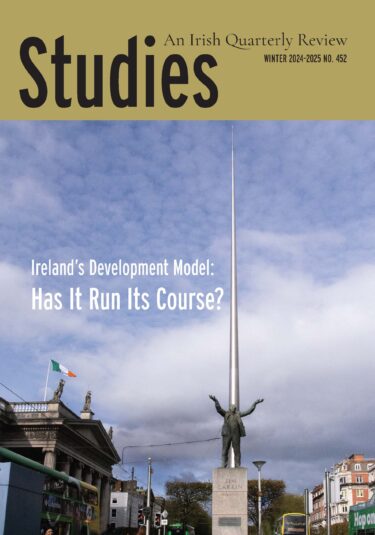Showing 1–12 of 14 results
Two monumental global crises in the past twenty years have given us all the warning we should need that if we don’t acknowledge our shared vulnerability and the necessity for mutual care, collective action, and worldwide solidarity, we will pay a devastating price.
The first of these was the financial crisis of 2007–8. Many public intellectuals at the time read the crisis as conclusively undermining neoliberal faith in deregulated markets, financialisation, and individualism. Contra Thatcher, they argued, there is such a thing as society, and without a balance between the role of markets and that of government and of non-market and non-governmental institutions, that society will crumble. You’d have 2008 all over again: millions of people losing their homes, their jobs, and their savings, or living constantly under the threat of losing them, and tens of millions falling into poverty. We had a choice. ‘If we make the right decisions,’ Nobel laureate Joseph Stiglitz wrote, ‘[…] we will not only make another crisis less likely, but perhaps even accelerate the kinds of real innovations that would improve the lives of people around the world. If we make the wrong decisions, we will emerge with a society more divided and an economy more vulnerable to another crisis and less well equipped to meet the challenges of the twenty-first century’.
And then, ten years later, Covid-19 struck. Once again, the verdict of the commentators was unequivocal: the pandemic had stripped away the illusions of individualism and self-sufficiency and revealed the fragility of human life on the planet; if we were to survive it, we had to choose solidarity over nationalist isolation. For Mariana Mazzucato, Covid-19 demonstrated the need for strong public institutions, more dynamic public sector capabilities, and collective investments in public health. It was a wake-up call, she said, for societies that relied too much on market-based solutions. Yuval Noah Harari stressed the need for a global plan: to meet a global crisis, there must be an openness to share information and expertise, to pool resources, and to create structures for global economic cooperation that are not hampered by insular or xenophobic attitudes.
One thing seemed clear: there was no going back to the way things were before. The pandemic was ‘a portal’, Arundhati Roy said – ‘a gateway between one world and the next’. But what would the world on the other side of the portal look like? That would come down to the choices we made. Would we take the route of global solidarity, or would we fall back into narrow nationalist isolation? Would we invest power in communities and in bodies that could effectively address issues of social and environmental justice, or would we allow it to become ever more concentrated in the hands of tech billionaires and autocrats?
Perhaps nobody sounded the alarm more frequently and more volubly on this issue than Pope Francis. Though there were some positive signs, he noted, ultimately the pandemic exposed our false securities and showed our inability to work together. ‘For all our hyper-connectivity,’ he wrote in Fratelli Tutti, ‘we witnessed a fragmentation that made it more difficult to resolve problems that affect us all.’ The root cause was clear, as was the remedy. ‘When the obsession to possess and dominate excludes millions of persons from having primary goods;’ he said in a general audience, ‘when economic and technological inequality are such that the social fabric is torn; and when dependence on unlimited material progress threatens our common home, then we cannot stand by and watch.’ Love, justice, and solidarity, he declared, is the only path.
Sadly, in many parts of the world another path was taken – the one Naomi Klein warned about in her Shock Doctrine, the path of disaster capitalism. That is, the exploitation of public vulnerability so as to push through a neoliberal agenda of reduced regulation, the privatisation of public services, and the concentration of power in the hands of a small plutocratic elite. And at the same time, illiberal democracy and ethnocentric nationalism flourished. They continue to do so; hopes of greater solidarity seem to have come to nothing – even as we face, in climate change, a far greater existential threat than any we have already met. Despite multiple warnings on the ecological front, we have still failed to remove the boundaries that inhibit collective action. Time has run out. The horrifying floods and the catastrophic loss of life and livelihood in Valencia, Spain, at the end of October makes one thing clear: the crisis is already upon us, and change is urgently needed even just to mitigate its effects.
Klein quotes Milton Friedman: ‘Only a crisis – actual or perceived – produces real change. When that crisis occurs, the actions that are taken depend on the ideas that are lying around’. But those ideas need not be Friedman’s free-market capitalist ideas. Other ideas are available. Pope Francis proposes the primacy of the person, the recognition of everyone’s right to live with dignity and to develop integrally, an attitude of service and solidarity, an acknowledgement of the social role of property, respect for the natural environment, and so on – ‘a new vision of fraternity and social friendship’. Such a thing is possible, but it must of course be expressed concretely. Vigilance, therefore, is needed in relation to the public policies and economic doctrines that govern the lives of our nations. The essays in this issue of Studies make a substantial contribution on this front in relation to Ireland. How is it the case that ‘such a rich country could have such deficient social provision and services in so many areas’? This is the question that Peadar Kirby and Mary Murphy, who planned and curated this issue, wished to have addressed when they commissioned the set of essays presented here. Ireland’s development model grew up, as they note in their introduction, under the dominance of foreign direct investment. What the essays they have brought together demonstrate is that ‘this is structurally at odds with the urgent need to foster social wellbeing in so many forms, all within the boundaries of what the planet can carry’. What they offer are detailed critiques to help us chart a better course.
***
Apart from this set of essays, the winter issue of Studies features the text of two public lectures, one on Newman’s university and the other on the theology of disability, as well as an author’s reflections on the process of writing an historical novel, and an academic biography of Micheál Mac Gréil SJ. In ‘John Henry Newman’s Campaign in Ireland: The Academic and Pastoral Vision of the Catholic University’, Paul Shrimpton argues that Newman’s private papers show that, contrary to a common misconception, he was not an impractical idealist with lofty but unrealistic notions about liberal education. Instead, he emerges as a man with both a clear and forward-looking vision and an ability to pay scrupulous attention to all the concrete details of running a university. And Newman’s vision, Shrimpton maintains, continues to be a valuable resource for people who seek to address ‘the lack of direction and loss of vision of the modern university’.
In April of this year, Brian Brock, Professor of Theology in the University of Aberdeen, delivered the third Annual Lecture of the Jesuit Centre for Faith and Justice, titled ‘How Might Christians Remain with the Disabled as Society calls for the Right To Die?’ Brock challenges misconceptions about disability and traces the influence of neoliberal capitalism in creating a stigma around the subject. He notes that the language in the debate around euthanasia often reflects the fact that ‘we live in a society in which our economic logics appear to be systematically depressing the value of the lives of the old and unproductive, and with them all who depend on the support of others’.
Ger FitzGibbon, former Head of Drama & Theatre Studies in University College Cork, recently published a novel that weaves a fictional narrative tightly into the fabric of the real events on one specific day, the burning of the centre of Cork city on 11 December 1920. In ‘Between Fact and Fiction: On writing Songs for a Burning City’, FitzGibbon reflects on the issues which arise for a novelist who generates a fictional narrative around established historical facts. But, of course, historians themselves, he notes, must also ask themselves to what extent ‘they utilise the processes of the fiction-writer in selecting the data they deem relevant, shaping it into a narrative, and drawing satisfactory interpretations from the material’. Fiction, like history, has its own kind of authority.
On 21 January 2023, Micheál P. Mac Gréil SJ, a renowned sociologist, activist, and advocate on many social issues, died aged ninety-one. His colleague of many years, Mary P. Corcoran, Professor of Sociology in Maynooth University, reviews Mac Gréil’s career in ‘Micheál Mac Gréil: Academic and Activist’. She recounts the immense work he did over many years on popular attitudes, such as prejudice, tolerance, and attitudes to the growing pluralism and social diversity in Ireland. Corcoran also examines Mac Gréil’s activism, especially on social justice issues and in relation to regional development. He will mostly be remembered, she asserts, for having shone ‘a bright light into the corners of Irish society where intolerance and lack of compassion for others prevailed’.

